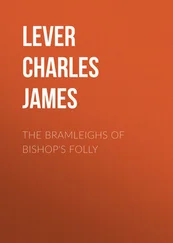Charles Lever - The Confessions of Harry Lorrequer — Volume 6
Здесь есть возможность читать онлайн «Charles Lever - The Confessions of Harry Lorrequer — Volume 6» — ознакомительный отрывок электронной книги совершенно бесплатно, а после прочтения отрывка купить полную версию. В некоторых случаях можно слушать аудио, скачать через торрент в формате fb2 и присутствует краткое содержание. Жанр: literature_19, foreign_antique, foreign_prose, на английском языке. Описание произведения, (предисловие) а так же отзывы посетителей доступны на портале библиотеки ЛибКат.
- Название:The Confessions of Harry Lorrequer — Volume 6
- Автор:
- Жанр:
- Год:неизвестен
- ISBN:нет данных
- Рейтинг книги:5 / 5. Голосов: 1
-
Избранное:Добавить в избранное
- Отзывы:
-
Ваша оценка:
- 100
- 1
- 2
- 3
- 4
- 5
The Confessions of Harry Lorrequer — Volume 6: краткое содержание, описание и аннотация
Предлагаем к чтению аннотацию, описание, краткое содержание или предисловие (зависит от того, что написал сам автор книги «The Confessions of Harry Lorrequer — Volume 6»). Если вы не нашли необходимую информацию о книге — напишите в комментариях, мы постараемся отыскать её.
The Confessions of Harry Lorrequer — Volume 6 — читать онлайн ознакомительный отрывок
Ниже представлен текст книги, разбитый по страницам. Система сохранения места последней прочитанной страницы, позволяет с удобством читать онлайн бесплатно книгу «The Confessions of Harry Lorrequer — Volume 6», без необходимости каждый раз заново искать на чём Вы остановились. Поставьте закладку, и сможете в любой момент перейти на страницу, на которой закончили чтение.
Интервал:
Закладка:
Charles James Lever
The Confessions of Harry Lorrequer — Volume 6
CHAPTER XLII.
THE JOURNEY
Trevanion came at last. He had obtained my passport, and engaged a carriage to convey me about eight miles, where I should overtake the diligence — such a mode of travelling being judged more likely to favour my escape, by attracting less attention than posting. It was past ten when I left the Rue St. Honore, having shaken hands with Trevanion for the last time, and charged him with ten thousand soft messages for the "friends" I left behind me.
When I arrived at the village of St. Jacques, the diligence had not come up. To pass away the time, I ordered a little supper and a bottle of St. Julien. Scarcely had I seated myself to my "cotelette," when the rapid whirl of wheels was heard without, and a cab drew up suddenly at the door. So naturally does the fugitive suspect pursuit, that my immediate impression was, that I was followed. In this notion I was strengthened by the tones of a cracked, discordant voice, asking in very peculiar French if the "diligence had passed?" Being answered in the negative he walked into the room where I was, and speedily by his appearance, removed any apprehensions I had felt as to my safety. Nothing could less resemble the tall port and sturdy bearing of a gendarme, than the diminutive and dwarfish individual before me. His height could scarcely have reached five feet, of which the head formed fully a fourth part; and even this was rendered in appearance still greater by a mass of loosely floating black hair that fell upon his neck and shoulders, and gave him much the air of a "black lion" on a sign board. His black frock, fur-collared and braided — his ill-made boots, his meerschaum projecting from his breast-pocket, above all, his unwashed hands, and a heavy gold ring upon his thumb — all made up an ensemble of evidences that showed he could be nothing but a German. His manner was bustling, impatient, and had it not been ludicrous, would certainly be considered as insolent to every one about him, for he stared each person abruptly in the face, and mumbled some broken expressions of his opinion of them half-aloud in German. His comments ran on: — "Bon soir, Monsieur," to the host: "Ein boesewicht, ganz sicher" — "a scoundrel without doubt;" and then added, still lower, "Rob you here as soon as look at you." "Ah, postillion! comment va?" — "much more like a brigand after all — I know which I'd take you for." "Ver fluchte fraw" — "how ugly the woman is." This compliment was intended for the hostess, who curtsied down to the ground in her ignorance. At last approaching me, he stopped, and having steadily surveyed me, muttered, "Ein echter Englander" — "a thorough Englishman, always eating." I could not resist the temptation to assure him that I was perfectly aware of his flattering impression in my behalf, though I had speedily to regret my precipitancy, for, less mindful of the rebuke than pleased at finding some one who understood German, he drew his chair beside me and entered into conversation.
Every one has surely felt, some time or other in life, the insufferable annoyance of having his thoughts and reflections interfered with, and broken in upon by the vulgar impertinence and egotism of some "bore," who, mistaking your abstraction for attention and your despair for delight, inflicts upon you his whole life and adventures, when your own immediate destinies are perhaps vacillating in the scale.
Such a doom was now mine! Occupied as I was by the hope of the future, and my fears lest any impediment to my escape should blast my prospects for ever, I preferred appearing to pay attention to this confounded fellow's "personal narrative" lest his questions, turning on my own affairs, might excite suspicions as to the reasons of my journey.
I longed most ardently for the arrival of the diligence, trusting that with true German thrift, by friend might prefer the cheapness of the "interieure" to the magnificence of the "coupe," and that thus I should see no more of him. But in this pleasing hope I was destined to be disappointed, for I was scarcely seated in my place when I found him beside me. The third occupant of this "privileged den," as well as my lamp-light survey of him permitted, afforded nothing to build on as a compensation for the German. He was a tall, lanky, lantern-jawed man, with a hook nose and projecting chin; his hair, which had only been permitted to grow very lately, formed that curve upon his forehead we see in certain old fashioned horse-shoe wigs; his compressed lip and hard features gave the expression of one who had seen a good deal of the world, and didn't think the better of it in consequence. I observed that he listened to the few words we spoke while getting in with some attention, and then, like a person who did not comprehend the language, turned his shoulder towards us, and soon fell asleep. I was now left to the "tender mercies" of my talkative companion, who certainly spared me not. Notwithstanding my vigorous resolves to turn a deaf ear to his narratives, I could not avoid learning that he was the director of music to some German prince — that he had been to Paris to bring out an opera which having, as he said, a "succes pyramidal," he was about to repeat in Strasbourg. He further informed me that a depute from Alsace had obtained for him a government permission to travel with the courier; but that he being "social" withal, and no ways proud, preferred the democracy of the diligence to the solitary grandeur of the caleche, (for which heaven confound him,) and thus became my present companion.
Music, in all its shapes and forms made up the staple of the little man's talk. There was scarcely an opera or an overture, from Mozart to Donizetti, that he did not insist upon singing a scene from; and wound up all by a very pathetic lamentation over English insensibility to music, which he in great part attributed to our having only one opera, which he kindly informed me was "Bob et Joan." However indisposed to check the current of his loquacity by any effort of mine, I could not avoid the temptation to translate for him a story which Sir Walter Scott once related to me, and was so far apropos, as conveying my own sense of the merits of our national music, such as we have it, by its association with scenes, and persons, and places we are all familiar with, however unintelligible to the ear of a stranger.
A young French viscomte was fortunate enough to obtain in marriage the hand of a singularly pretty Scotch heiress of an old family and good fortune, who, amongst her other endowments, possessed a large old-fashioned house in a remote district of the highlands, where her ancestors had resided for centuries. Thither the young couple repaired to pass their honeymoon; the enamoured bridegroom gladly availing himself of the opportunity to ingratiate himself with his new connexion, by adopting the seclusion he saw practised by the English on such occasions. However consonant to our notions of happiness, and however conducive to our enjoyment this custom be — and I have strong doubts upon the subject — it certainly prospered ill with the volatile Frenchman, who pined for Paris, its cafes, its boulevards, its maisons de jeu, and its soirees. His days were passed in looking from the deep and narrow windows of some oak-framed room upon the bare and heath-clad moors, or watching the cloud's shadows as they passed across the dark pine trees that closed the distance.
Ennuyee to death, and convinced that he had sacrificed enough and more than enough to the barbarism which demanded such a "sejour," he was sitting one evening listlessly upon the terrace in front of the house, plotting a speedy escape from his gloomy abode, and meditating upon the life of pleasure that awaited him, when the discordant twang of some savage music broke upon his ear, and roused him from his reverie.
Читать дальшеИнтервал:
Закладка:
Похожие книги на «The Confessions of Harry Lorrequer — Volume 6»
Представляем Вашему вниманию похожие книги на «The Confessions of Harry Lorrequer — Volume 6» списком для выбора. Мы отобрали схожую по названию и смыслу литературу в надежде предоставить читателям больше вариантов отыскать новые, интересные, ещё непрочитанные произведения.
Обсуждение, отзывы о книге «The Confessions of Harry Lorrequer — Volume 6» и просто собственные мнения читателей. Оставьте ваши комментарии, напишите, что Вы думаете о произведении, его смысле или главных героях. Укажите что конкретно понравилось, а что нет, и почему Вы так считаете.












